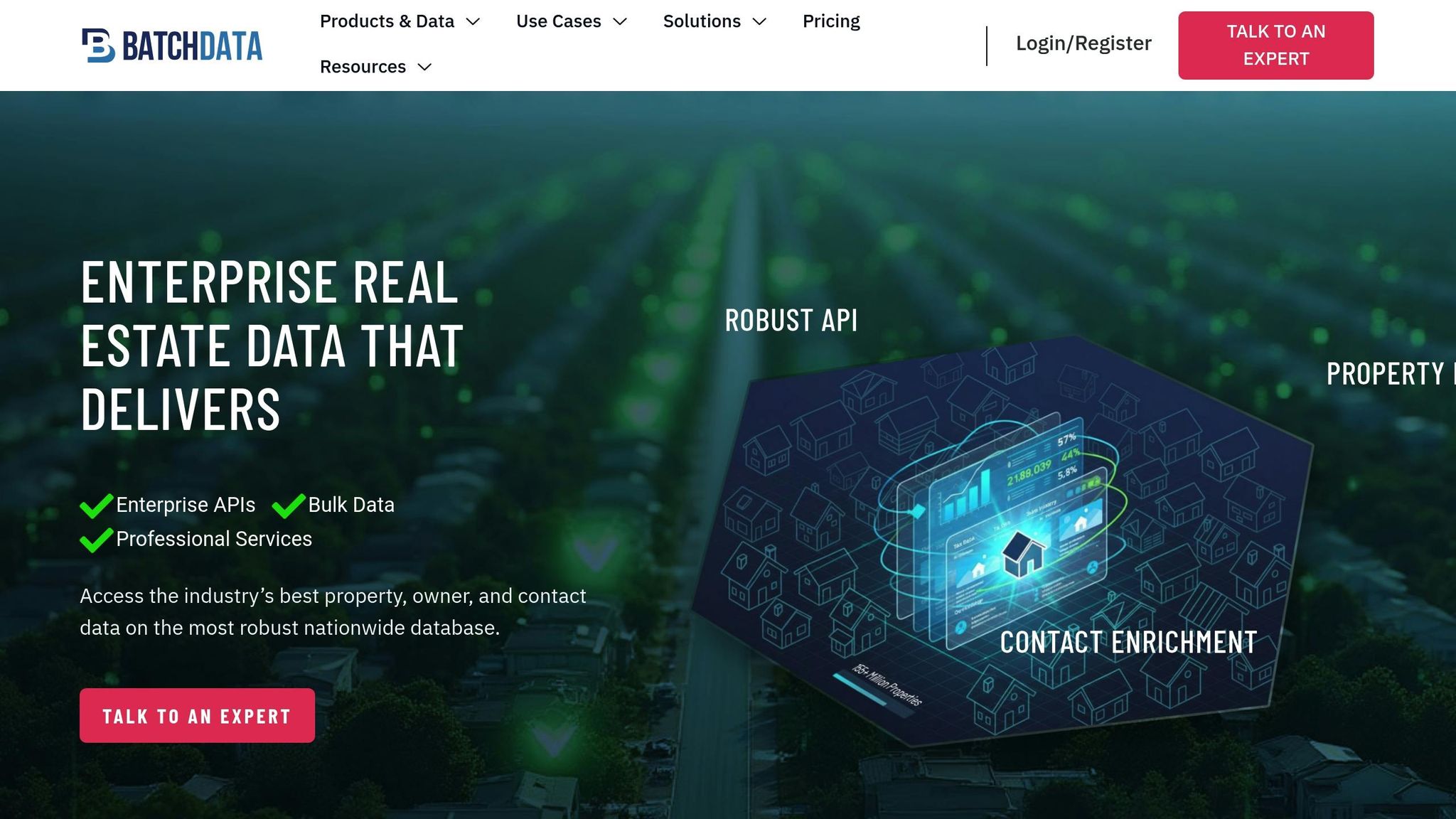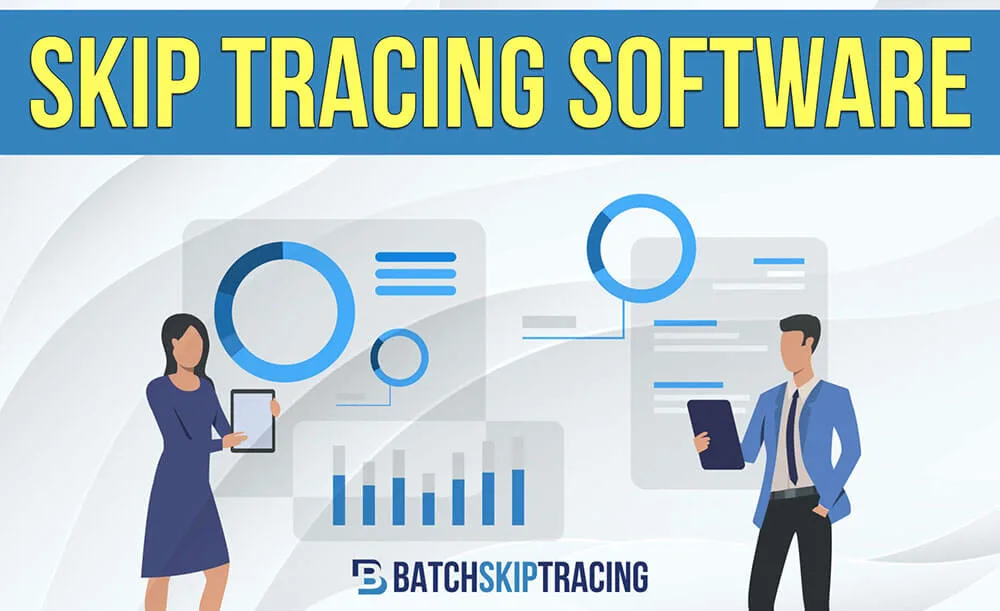API security in real estate is critical because these systems handle sensitive data like property details, financial transactions, and personal information. Breaches can lead to massive financial losses, regulatory fines, and reputational damage.
Key issues include:
- Weak authentication: Static API keys and lack of role-based access control expose systems to unauthorized access.
- No encryption: Transmitting or storing data without encryption makes it vulnerable to interception.
- Poor input validation: Unchecked inputs can lead to injection attacks and data corruption.
- No rate limiting or monitoring: Systems become prone to denial-of-service attacks and unnoticed malicious activities.
- Shadow APIs: Undocumented endpoints and outdated versions increase risk.
To protect your APIs, focus on:
- Implementing OAuth 2.0, TLS 1.3, and AES-256 encryption.
- Enforcing strict input validation and schema rules.
- Setting up rate limits and real-time monitoring.
- Maintaining an updated API inventory and deprecating unused versions.
BatchData offers secure API solutions tailored for real estate, ensuring compliance with regulations like CCPA and GLBA while providing encryption, authentication, and monitoring tools to protect sensitive data.
Takeaway: Strong API security measures are not optional in real estate. Implementing best practices like encryption, monitoring, and proper access control can prevent costly breaches and maintain client trust.
API Security Fundamentals – Course for Beginners
Common API Security Mistakes in Real Estate Applications
Real estate APIs handle sensitive data and often require complex integrations, making them prime targets for security breaches. Addressing common vulnerabilities is key to safeguarding your business and ensuring customer trust. Here are some frequent mistakes that can undermine API security, along with insights on how to avoid them.
Weak Authentication and Authorization
Static API keys are a major weak point. If these unchanging keys end up in code repositories or log files, attackers can easily exploit them to gain unauthorized access. Moreover, the absence of role-based access control (RBAC) can inadvertently grant users excessive privileges, exposing sensitive data. Alarmingly, over 50% of API breaches are linked to inadequate authentication or authorization mechanisms. Such vulnerabilities can lead to data theft, manipulation, regulatory penalties, and a decline in customer confidence.
Missing Encryption for Data Protection
Transmitting data without encryption is a glaring vulnerability. Without HTTPS or TLS protocols, sensitive details – like property owner information or financial records – travel as plain text, making them easy targets for interception. Similarly, databases that store real estate data without encryption at rest are at risk of exposing massive amounts of confidential information in the event of a breach. To mitigate these risks, use TLS 1.3 for secure data transmission and strong encryption algorithms to protect data at rest.
Poor Input Validation
APIs that fail to validate input properly open the door to injection attacks and data corruption. For instance, attackers can exploit unchecked queries to manipulate or extract data, leading to inaccurate property listings or compromised contact details. To prevent this, enforce strict schema validation and sanitize inputs at every API endpoint to maintain the integrity of your data.
No Rate Limiting and Monitoring
APIs without rate limits are vulnerable to denial-of-service (DoS) attacks and resource exhaustion. Automated bots or malicious actors can flood your system with requests, disrupting services and blocking legitimate users from accessing critical property information. Additionally, a lack of monitoring allows unusual activity to go unnoticed until significant damage occurs. Implementing rate limits – such as 100 requests per minute per user – can help curb automated abuse. Coupling this with real-time monitoring ensures quicker detection and mitigation of suspicious behavior.
Poor API Management and Version Control
Undocumented or "shadow APIs" often lack proper security measures, making them easy targets for attackers. Additionally, older API versions may remain accessible even after newer, more secure versions are released, creating compliance challenges and slowing incident response efforts. Reports indicate a 78% year-over-year increase in API security breaches, with outdated and poorly managed APIs playing a major role.
Best Practices for Securing Real Estate APIs
To protect sensitive property data and maintain customer confidence, it’s essential to implement robust security measures. Here’s how you can safeguard your real estate APIs effectively:
Set Up Strong Authentication and Access Control
Implement OAuth 2.0 and OpenID Connect for secure user authentication. These protocols allow users to log in without exposing passwords or sensitive credentials. Unlike static API keys, OAuth tokens are temporary and can be revoked instantly if compromised.
Incorporate Role-Based Access Control (RBAC) and Attribute-Based Access Control (ABAC) to restrict access based on user roles or specific conditions, such as time of access or approved IP addresses.
For service-to-service communication, adopt mutual TLS (mTLS). This ensures both parties authenticate using digital certificates, which is particularly important when working with external partners handling sensitive data.
Finally, enforce strict authorization checks on all API requests to prevent vulnerabilities like Broken Object Level Authorization (BOLA) – a risk flagged by OWASP as one of the most severe API security threats.
Use Encryption Standards
All API communications should use HTTPS with TLS 1.3 to encrypt data in transit, protecting it from interception. Regularly update certificates and configure protocols to guard against man-in-the-middle attacks.
For data at rest, apply AES-256 encryption to secure sensitive information like property records and client details. Even in cases of unauthorized physical access, encrypted data remains protected. This is critical during backups and maintenance.
A 2023 breach in a real estate platform highlights the importance of these measures. Attackers exploited weak API authentication and unencrypted data transmission, exposing sensitive client and property details. The fallout included hefty regulatory fines and a loss of client trust.
Add Input Validation and Schema Rules
Use tools like JSON Schema and OpenAPI specifications to define acceptable data formats and values for your APIs. These tools reject malformed requests before they reach your application, acting as a first line of defense.
Validation rules should cover key areas like data types, required fields, and value ranges (e.g., ensuring property prices are positive and ZIP codes are valid). This not only improves security but also enhances data quality across systems.
Monitor and Limit API Usage
Rate limiting is an effective way to prevent abuse by capping the number of requests users can make within a set timeframe. This prevents bots from overwhelming your servers and ensures consistent service availability.
Set up real-time monitoring systems to detect unusual activity, such as repeated failed login attempts or requests from unfamiliar IP addresses. Log critical API interactions, including timestamps, user identities, and response codes, to aid in compliance and incident investigations.
Leverage API gateways to centralize traffic management, authentication, and policy enforcement. These gateways provide a unified control point for securing your real estate APIs.
Keep API Records and Manage Versions
Maintain a complete inventory of your APIs to avoid "shadow APIs" – undocumented endpoints that could become security liabilities. Regular audits can uncover hidden vulnerabilities before they are exploited.
Use version control to introduce security updates without disrupting existing integrations. When rolling out updates with improved authentication or encryption, clearly deprecate older versions and provide migration paths. Updated documentation ensures developers can easily adapt to new requirements.
Promptly decommission unused APIs to reduce your attack surface. By integrating security testing into your CI/CD pipeline, you can catch vulnerabilities early and ensure new API versions are secure before they go live.
sbb-itb-8058745
Using Secure Real Estate Data Solutions with BatchData

Implementing strong security measures is essential for protecting sensitive real estate data. Partnering with a reliable data provider like BatchData can be the key to transforming a vulnerable system into a secure and compliant solution. With a focus on real estate-specific needs, BatchData offers a secure and scalable API platform designed to address the industry’s unique challenges.
BatchData’s Secure API Services
BatchData integrates best practices into every layer of its API services. The platform uses industry-standard encryption to protect data during transmission and employs robust authentication methods like OAuth 2.0 and secure API keys to prevent unauthorized access.
One standout feature is the Phone Verification API, which validates contact data in milliseconds. By checking number validity, carrier details, and line type, it helps prevent fake accounts from infiltrating CRMs and lead management systems – an issue that can compromise data integrity and lead to compliance headaches.
BatchData’s property search and contact enrichment APIs are tailored for the real estate industry, incorporating rigorous input validation and schema rules. Each API request is checked against predefined formats, ensuring that malformed data never enters your systems. This not only strengthens security but also improves the overall quality of your data workflows.
For bulk data delivery, BatchData employs strict rate limiting, load balancing, and continuous monitoring. These measures ensure high performance while detecting and addressing potential security threats in real time. The platform’s monitoring systems track API activity 24/7, enabling swift identification of unusual patterns or security concerns.
Here’s a real-world example: A U.S.-based real estate brokerage recently adopted BatchData’s property search and contact enrichment APIs to streamline its lead qualification process. By leveraging BatchData’s encryption, secure authentication, and compliance features, the brokerage reduced manual errors, sped up response times, and successfully passed a third-party compliance audit without any major issues.
Meeting Compliance and Scale Requirements with BatchData
BatchData is designed to tackle both regulatory and scalability challenges head-on. Its solutions align with critical U.S. data privacy laws, including the California Consumer Privacy Act (CCPA) and the Gramm-Leach-Bliley Act (GLBA). This alignment is crucial for real estate businesses handling sensitive personal and financial data, as non-compliance can lead to hefty fines and damage to a company’s reputation.
The platform follows data minimization principles, ensuring that only essential information is collected and processed. Access controls and audit logging provide the transparency needed for regulatory compliance, while features for handling data subject requests help businesses meet their legal obligations under privacy laws.
BatchData’s enterprise-grade infrastructure is built to scale with growing real estate operations. With access to over 155 million property records and 800 million contact records, the platform can handle everything from individual agent queries to large-scale bulk data requests. Real-time updates from verified sources ensure that security is never compromised, even as data quality remains top-notch.
To maintain security and functionality, BatchData employs a robust API versioning strategy. Clients are notified well in advance about deprecations and updates, allowing them to plan migrations and test new features in non-production environments. When security updates are released, clear documentation and migration paths ensure a smooth transition, minimizing disruptions.
By integrating BatchData’s secure API solutions, real estate professionals can address common vulnerabilities like weak authentication, lack of encryption, and poor input validation. BatchData also provides a professional services team to assist with seamless API integration. Their REST APIs come with detailed documentation and support for widely used data formats in U.S. real estate systems, making incremental deployment and testing straightforward.
For developers, BatchData recommends using automated security testing tools throughout the API lifecycle and staying informed about emerging threats. This proactive approach, combined with BatchData’s emphasis on compliance and transparency, makes them a reliable partner for real estate businesses seeking secure, scalable, and efficient data solutions.
Conclusion: Building Secure Real Estate APIs
Handling sensitive data in the real estate industry calls for top-notch API security. With breaches skyrocketing by over 600% in the past five years and each incident costing as much as $9.48 million, the stakes couldn’t be higher.
Key Takeaways for Real Estate Professionals
The numbers paint a clear picture – strong API security is non-negotiable. To safeguard your systems, implement these essential measures:
- Use OAuth 2.0/OpenID Connect for authentication.
- Enforce HTTPS with TLS 1.3 for secure data transmission.
- Employ AES-256 encryption for data storage.
- Conduct strict input validation to prevent vulnerabilities.
- Monitor API activity continuously.
- Maintain an up-to-date API inventory for better oversight.
With over 60% of organizations reporting at least one API security incident in the past year, tools like automated alerts and usage thresholds can be game-changers. These measures help identify issues early, reducing the risk of costly breaches. Regular security audits also ensure endpoints remain secure, while controlled deprecation processes help maintain system stability during updates.
These strategies form a solid foundation for protecting real estate data and ensuring operational resilience.
Collaborating with BatchData for Secure APIs
Navigating API security while meeting compliance standards can be complex. That’s where trusted partners like BatchData come in. With a proven infrastructure, robust versioning, and rapid validation APIs, BatchData offers secure and scalable solutions tailored to real estate needs. Their expertise ensures seamless data integration without compromising performance.
FAQs
How does OAuth 2.0 differ from static API keys in securing real estate APIs?
When it comes to securing APIs, OAuth 2.0 and static API keys are two widely used methods, but they serve very different purposes and offer varying levels of security.
Static API keys are essentially fixed strings of characters that authenticate API requests. They’re straightforward to use and implement, but their simplicity comes with drawbacks. If a static key is exposed, it’s vulnerable to misuse since it doesn’t expire and lacks features like granular access controls. This can make them risky for applications that handle sensitive data.
In contrast, OAuth 2.0 is a more advanced framework that uses token-based authentication. It issues temporary access tokens, supports detailed permission settings, and integrates seamlessly with user authentication systems. These features provide a higher level of security, making OAuth 2.0 particularly well-suited for applications that need scalable and secure access, such as real estate APIs.
What steps can real estate companies take to secure their APIs and comply with regulations like CCPA and GLBA?
To comply with regulations like the California Consumer Privacy Act (CCPA) and the Gramm-Leach-Bliley Act (GLBA), real estate companies need to treat API security as a top priority. A good place to start is by using strong authentication and authorization protocols, such as OAuth 2.0, to manage who can access sensitive information. It’s also essential to encrypt data both in transit and at rest, using trusted, industry-standard encryption techniques.
Beyond these basics, regular security audits and vulnerability assessments are crucial for spotting and addressing potential weaknesses. Limit API access to only the data absolutely necessary for its specific purpose, and keep a close eye on API activity to detect any unusual or unauthorized behavior. These steps can help safeguard consumer data while ensuring compliance with important privacy laws.
How can ‘shadow APIs’ be managed and secured in real estate applications?
Shadow APIs – those undocumented or forgotten APIs – can introduce serious security risks, especially in real estate applications where sensitive data is often involved. To tackle these risks, the first step is creating a thorough inventory of all APIs, ensuring you identify any unmanaged or hidden ones. Make it a habit to keep this inventory up to date so nothing slips through the cracks.
After pinpointing these APIs, focus on securing them. Use strong authentication and authorization measures like API keys or OAuth to control access. It’s equally important to keep an eye on API activity with monitoring tools that can flag unusual behavior or unauthorized access attempts. Taking these proactive measures helps safeguard critical real estate data and reduces potential vulnerabilities.



